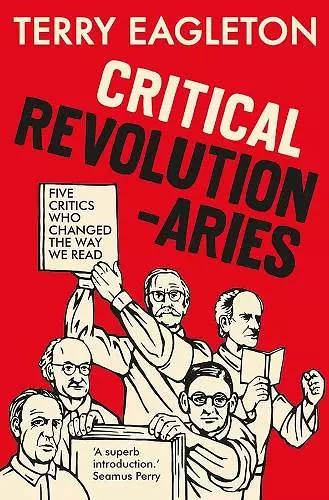Critical Revolutionaries
Five Critics Who Changed the Way We Read
Format:Paperback
Publisher:Yale University Press
Published:27th Jun '23
Should be back in stock very soon

This insightful work examines the evolution of literary criticism, focusing on influential figures and their impact on modern thought. Critical Revolutionaries highlights the importance of this legacy.
In Critical Revolutionaries, Terry Eagleton reflects on a transformative era in literary criticism spanning sixty years. He delves into a critical milieu that emerged in response to the challenges posed by a commercialized society, particularly in the wake of the First World War. This period saw a new generation of critics who sought to revitalize language and literature, viewing their work as a means to diagnose the social issues of their time. Their critiques were not merely academic; they carried a moral weight, challenging the status quo and addressing the cultural shifts influenced by film, advertising, and the mass media.
Eagleton pays homage to five pivotal figures: T. S. Eliot, I. A. Richards, William Empson, F. R. Leavis, and Raymond Williams. These critics were instrumental in shaping modern literary thought and represent a significant intellectual movement in twentieth-century Britain. Their contributions reflect a commitment to exploring the intersections of literature and society, emphasizing the importance of criticism in understanding cultural dynamics. The author argues that their legacy is at risk of being overlooked in contemporary discourse.
Through Critical Revolutionaries, readers gain insight into the vibrant tradition of literary criticism that emerged during the heyday of modernism. Eagleton's exploration highlights the innovative spirit of this time, marked by experimentation and bold ideas that continue to influence critical theory today. In a world where literature often feels disconnected from reality, this work serves as a reminder of the vital role that literary criticism can play in engaging with societal challenges.
ISBN: 9780300270440
Dimensions: unknown
Weight: unknown
336 pages